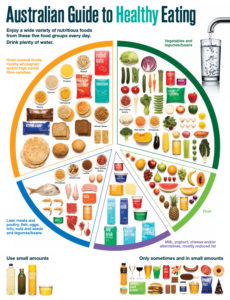You might be excused for thinking that public health messages should and would make us healthier, but it’s not as simple as that.
The food and pharmaceutical industries can influence healthy eating guidelines. It’s no wonder there’s so much confusion about how to eat well and how to be healthy.
This is a story that is easy to miss but, once you’re aware of it, difficult to ignore.
Taking a step back to look at a brief history of public health messages you’re already familiar with (or have been influenced by) provides an insight into why health messages are often confusing and contradictory.
It will also help you make informed decisions and take control of your own health.
Cholesterol and heart disease
In 1930, heart attack deaths were rare, but by 1960, this figure had skyrocketed to 500,000 deaths. Interestingly, the rise in deaths coincided with the invention and commercialisation of highly processed, unstable-when-heated seed oils (sunflower, safflower, and canola) as a cheap alternative to animal fat, and to extend the shelf life of processed food. We now have ultra processed foods and their consumption affects the size and shape of your mouth and airway.
Research in the 1930s actually showed no correlation between cholesterol and heart disease.
In 1955 a charismatic American physiologist, Ancel Keys, released his Seven Countries Study, even though he actually studied 22 countries, and concluded that higher saturated fat consumption leads to higher rates of heart disease.
Keys however is often criticised for cherry-picking the countries that fitted his hypothesis, but that didn’t stop it from becoming health policy, particularly when supported by the industries that stood to benefit most.
The demonisation of fat and cholesterol
The demonisation of fat and cholesterol was eventually promoted by the governments and health authorities.
Among the many factors overlooked is the importance of cholesterol to every cell and hormone in our body. The low-fat dogma brought with it an excellent marketing opportunity for other food industries, particularly sugar and grains.
While elevated blood sugar had been recognised at that time as a major contributor to increased weight and many chronic diseases, carefully sponsored research and support of major health organisations, helped entrench and market the message.
Fat and cholesterol were bad.
The food pyramid
In 1992 the US Department of Agriculture (USDA), introduced the food pyramid.
In 2011 it morphed into MyPlate, and in 2013 into the Australian Guide to Healthy Eating.

Source: Australian Government, EatForHealth Australian Guide to Healthy Eating
The food pyramid and the updated healthy eating guidelines are still heavily based on on grains and carbohydrates, and the demonisation of fat and cholesterol.
The Heart Foundation and Diabetes Council supported the Pyramid from 1993 onwards, and all including the USDA still promote this position.
That simple health message spawned a multi-billion-dollar industry for the food industry, equating ‘low-fat’ with being healthy, and for the pharmaceutical and medical industry, the widespread use of the world’s first blockbuster drug, statins, to lower cholesterol.
This has proven to be a great economic model, just not a very good health model.
If the evidence is anything to go by, the impact of these public health messages was poor, to say the least.
What are the health outcomes of these policies?
In 1980, fewer than six million Americans had diabetes, but by 2018 over 100 million Americans have diabetes or pre-diabetes. The trends in Australia are similarly alarming.
The news for heart disease is no better, as globally it is still the number one killer. In Australia, one person dies from cardiovascular disease every twelve minutes and there are approximately seventeen million deaths globally, every year.
Cancer and autoimmune conditions have also increased alarmingly.
The Harvard School of Public Health concluded:
“The US pyramid blueprint was based on shaky scientific evidence, and it barely changed over the years to reflect major advances in our understanding of the connection between diet and health.”
The impact of the food and pharmaceutical industries
The food and pharmaceutical industries also have a long history of sponsoring major health organisations, lobbying governments and influencing academic institutions and regulatory bodies. The return on investment is clearly working.
In 2003 the American Academy of Paediatric Dentistry stated,
“Frequent consumption of sugars in any beverage can be a significant factor in the child or adolescent diet that contributes to the initiation and progression of dental caries (cavities).”
A health message that no one would argue with – or would they?
In 2004, Pepsi donated US$1 million to the same organisation and its public health message changed to this;
“Scientific evidence is certainly not clear on the exact role that soft drinks play in terms of children’s oral disease.”
It is just one simple example of how sponsorship creates doubt and affects health messages and outcomes.
What can you do?
Government health authorities, professional health associations and organisations are letting us down.
They are too influenced by industries, slow to change, more protective of their own reputations than public health, and often just lack common sense. The rise of chronic health conditions in the western world shows us the healthy eating guidelines need to be reviewed.
Your health is too important to entrust to someone else. You must take control of it yourself.
With knowledge comes power and hopefully this empowers you. The solutions are remarkably simple.
Focus on sleep, move regularly and eat real food that our ancestors would recognise as food. Improving your sleep, nourishing and moving your body are a few of the key pillars of the Unstress Health program.





